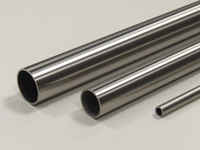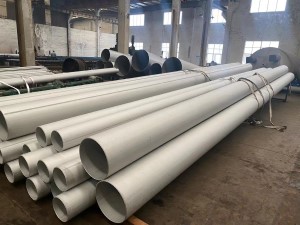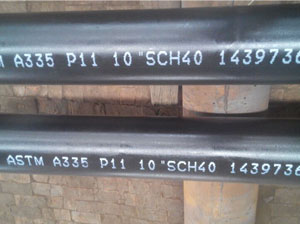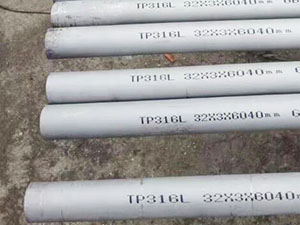
Dual certified 304/304H is used as a material of construction up to 1500°F. Slight scaling begins at about 1200°F. This is the 0.04% minimum carbon version of type 304 stainless. It has general corrosion resistance similar to the low carbon 304/304L. However, it is subject to carbide precipitation in the heat affected zone (HAZ) of welds. Weldments may be sensitive to HAZ intergranular corrosion in oxidizing acid environments, and to polythionic acid stress corrosion cracking. The carbide precipitation is not harmful to high temperature mechanical properties.
304/304H is welded using the 22Cr 11Ni filler wire (ER308), or covered electrodes (E308). Post-weld heat treatment is not necessary for most high temperature service.
Chemistry
|
|
Cr
|
Ni
|
C
|
Mn
|
Si
|
P
|
S
|
Fe
|
|
MIN
|
18.0
|
8.0
|
0.04
|
–
|
–
|
–
|
–
|
–
|
|
MAX
|
20.0
|
10.5
|
0.10
|
2.0
|
0.75
|
0.04
|
0.03
|
Balance
|
Specifications
AMS 5513
ASME SA 240
ASTM A 240, ASTM A 959
EN 1.4301
UNS S30400, UNS S30409
W. Nr./EN 1.4948
Werkstoff 1.4301
Inventory
304 / 304H Plate, 304 / 304H Welding Products
Common Trade Names
304H Stainless
Features
Elevated temperature service to 1500°F
Corrosion resistance similar to 304/304L
Applications
Pressure Vessels
Petrochemical Equipment
Physical Properties
Density: 0.285 lb/inch3
Temperature, °F 212 1600
Coefficient* of Thermal Expansion, in/in°F x 10-6 9.4 –
Thermal Conductivity Btu • ft/ft2 • hr • °F 9.4 10.9
* 70°F to indicated temperature.
Mechanical Properties
Representative Tensile Properties
|
|
Minimum
|
Typical
|
|
Ultimate Tensile Strength, ksi
|
75
|
90
|
|
0.2% Yield Strength, ksi
|
30
|
35
|
|
Elongation, %
|
40
|
60
|
Maximum Allowable Stresses, ASME Section VIII, Div 1 Temperature, °
|
Temperature, °F
|
200
|
400
|
600
|
800
|
1000
|
1200
|
1400
|
1500
|
|
stress, ksi
|
20.0
|
18.3
|
16.6
|
15.2
|
14.0
|
6.1
|
2.3
|
1.4
|






